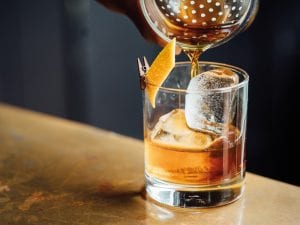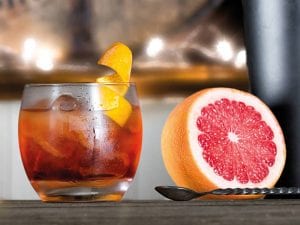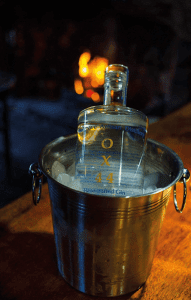Turkey is a traditional favourite but there are so many choices of meat when it comes to the festive table, and many excellent local producers
What scene depicts Christmas more traditionally than a large cooked bird being brought out to the table and carved by the head of the household?
Turkey is, of course, the popular festive choice. Tom Copas Jnr says: “Turkey is what you’re meant to have! We’ve been rearing the best turkeys in Britain for over 60 years and nothing tastes better on Christmas Day, especially knowing all the care and attention that’s gone into their welfare.” Visit www.copasturkeys.co.uk.
Walters Turkeys is a family business running since 1911 on the Yattendon Estate in the Berkshire Downs. The team are passionate about animal welfare and expert in the best way to cook and store your bird for the perfect feast; call 01635 578 251 or visit www.waltersturkeys.co.uk. Tell your butcher how many guests you have (and how greedy!) to select a bird or joint of the perfect size.
Excellent traditional alternatives to turkey include goose and duck, which are more expensive and do not give as much meat per size as a turkey. Cockerels (male chickens) clock in at about the 10lb in weight and are becoming a popular alternative to turkey. For more adventurous of home cooks there is also the three-bird roast, with a wide variety of bird breasts one inside another (such as turkey, pheasant and partridge). These have plenty of meat but need to be carefully cooked.
Hungerford butcher Christian Alba says: “In all the places I’ve worked, Christmas meat is usually turkey. But I grew up on a turkey farm, so I have beef fore rib.” Phil Currie, head chef at The Greyhound in Letcombe Regis says: “I like to use beef shin as the bone provides so much flavour which leaves you with a great sauce. For Christmas we serve it with classic bourguignon garnish and a twist with a blue cheese dumpling. It’s a great alternative to turkey.” Visit www.thegreyhoundletcombe.co.uk or call 01235 771969.
Jesse Smith Butcher & W.J Castle in Cirencester has a unique dry-aging process for its beef featuring a room lined with Himalayan salt bricks. The company, which goes back for several generations, are passionate about animal husbandry and welfare and also offer the very finest poultry, game, pork and lamb for the well-stocked Christmas larder; visit www.jessesmith.co.uk or call 01285 653352.


Recipe queen Lyn Deveson says: “I’ve always cooked turkey and a gammon; cold turkey, ham, turkey curried, stir fried, in sandwiches is a big part of the appeal. But I cooked a cockerel last Christmas and won’t go back to turkey – it has more flavour. I remember my mother cooking the turkey all night on a low heat but the French way is best; higher heat and less time. People complain it can be dry but if cooked properly, it isn’t. Good gravy makes all the difference, too!
“I also remember my mother cooking the turkey all night on a low heat, but the French way is best – higher heat and less time. People complain it can be dry but if cooked properly, it isn’t. Traditionally we cook turkey, stuffing, bread sauce, sausages wrapped in bacon etc. with the head male at the top of the table, carving! That’s the picture we all have in our heads and everyone wearing paper hats and pulling crackers! Because turkey meat can be quite bland, you can go to town with the other flavours. A good gravy makes the difference and thanks to chefs such as Jamie Oliver, we are learning that Bisto is not the essential ingredient but I am shocked by the number of English who still use it! The trouble is we are so spoilt nowadays and can eat anything any time of the year, so Christmas lunch or dinner isn’t such a treat as it used to be.”

Enter our competition for a Christmas In A Box foodie hamper – including a 6kg turkey!






